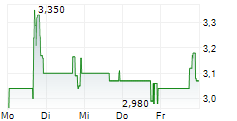BRISTOL, TN / ACCESS Newswire / October 28, 2025 / Most online travel agencies can't prove their advertising works.
They spend millions driving traffic to booking pages. But the connection between inspiration and transaction remains opaque. Attribution ends at the click.
In a recent interview with Vanderbilt Report, NextTrip CEO Bill Kerby explained how he's building something different. A vertically integrated ecosystem that connects content consumption directly to booking transactions.
It's a model that traditional travel companies haven't attempted at scale.
Defining the Intersection of Media and Travel
NextTrip combines media technology with curated travel services. The differentiation, Kerby explains, lies in bridging storytelling and commerce where consumers can watch, scan, and book within the same platform.
"We're actually defining the intersection of media and travel," he says. "Since the pandemic, younger generations consume information across screens, streaming content, engaging in content. We're transforming travel discovery into direct booking transactions."
The company acquired the JOURNY FAST Channel earlier this year, bringing 17 million viewers into their ecosystem. The platform launched on Samsung TV and is expanding to Roku, Apple TV, iOS, and Android as a video-on-demand application.
This distribution strategy targets where travel content performs best. The travel industry maintains a 1.2% engagement rate on connected TV, outperforming both retail and finance.
Content Strategy With Commercial Intent
NextTrip blends licensed content with its own original productions. The company recently announced several original shows, including one featuring Chef Ben Robinson from Bravo's Below Deck.
The show, called Tide, films aboard Sea Cloud ships. Robinson showcases the vessel, itinerary, ports of call, and culinary experiences at each destination.
"It's a way for the cruise company to showcase their exceptional ships to consumers," Kerby notes. "We're not only bringing awareness to the consumer but for these brands and specialty advertisers, bringing them into a market."
The overlay technology enables "watch-scan-book" functionality. The system uses QR codes and interactive elements borrowed from gaming UX principles.
"We're not trying to frustrate or disrupt the consumer while they're watching content," Kerby explains. "We're tastefully engaging them with overlays, even QR codes. The property they may be watching, the resort, the cruise, can be inspirational and purchased. We'll be pushing coupons or click here, and we even have concierge staff so that the consumer can talk through to get the best value."
The approach aligns with broader shoppable video trends. Research shows 84% of consumers report being convinced to purchase after watching brand videos, and 41% of shoppable video viewers complete purchases.
The Dual Revenue Flywheel
NextTrip operates differently than traditional online travel agencies. Most OTAs rely on a single revenue stream through booking commissions, which typically account for 60% of the market.
"We're a dual revenue model with media conversion advertising and also travel bookings," Kerby clarifies. "Another key differentiator to most of the OTAs out there and travel companies that are one dimensional."
He describes it as a flywheel effect. "The media content up front drives inspiration for travel bookings, which can be handled by our company or directed to our preferred partners sites as they are paying for this highly targeted specialty advertising and are being afforded the option to drive traffic into their booking funnel."
The company recently announced partnerships with Playa Hotels, Palladium Hotels, and Atelier. These partners pay for specialty advertising to drive traffic into their booking funnels.
"What we bring to the consumer and to the brands is a strategic win for all," Kerby notes.
The attribution capability extends beyond pure advertising. "We've got attribution now, and I don't think there's anyone else that really has this," he says. "It allows advertising partners and influencers to actually go beyond a pure advertising model. There is actually now click through to content."
Global Expansion Into High-Growth Markets
NextTrip is moving beyond North America. The company partnered with KC Global Media, a U.S.-based firm founded by former Sony Global Media executives with 180 million viewers across their platform.
"By the end of this year and into early 2026, they expect to be taking our streaming content and moving it across their platform as well," Kerby explains. "This moves NextTrip for the first time from being a North American, U.S.-focused consumer presentation to being now in Southeast Asia."
European distribution will be our next fronteer, and when completed, Nexttrip media will be in position to offer advertisers and preferred partners global reach.
The timing targets the fastest-growing travel markets. The Asia-Pacific region shows the strongest expansion due to rising incomes and increasing middle-class spending.
"We've been in a buy and build mode really for the most part of this year with acquisitions," Kerby notes. "We're continuing to look for additional content or platform delivery that we can get to secure a more global footprint."
Building a First-Mover Moat
Kerby emphasizes NextTrip's first-mover advantage in content-to-commerce travel. The company is building a moat through proprietary technology, a relevant licensed and original content catalogue, and strategic partnerships before competitors enter the space.
"We're a first mover here, especially with the content to commerce and what we're doing to build a moat around this," he says. "Really scaling up quickly on this side and the model that we're pushing, which is this intersection of media and travel."
Travel media networks represent a growing segment. Ad spending in this category will exceed $2 billion in 2024, with a projected compound annual growth rate of 17.88% through 2026.
"We're getting notoriety and interest now from other travel partners that see this unique approach in the way to engage the consumer, the new consumer that streams and takes everything from media for inspiration."
The Underestimated Shift
Kerby believes other travel executives are underestimating how fundamentally consumer behavior has changed.
"The traditional funnel has completely transformed," he says. "Today's travelers, especially younger generations, are making purchasing decisions directly through the content they consume across streaming platforms. While many companies are still focused on traditional advertising or basic social media, we're building an ecosystem that captures the consumer at the moment of inspiration and creates a direct path to booking."
NextTrip's approach captures multiple trends. Younger generations increasingly make purchasing decisions through streaming content. Gen Z travelers book international flights 32% more than domestic ones, showing appetite for the experiences NextTrip showcases.
The company's proprietary overlay technology, originally developed by NextTrip media and technology team members with gaming industry experience, represents a technical advantage. The system balances engagement with user experience, avoiding the friction that kills conversions.
As the travel industry approaches $956 billion in projected 2025 revenue, NextTrip's dual revenue model and vertical integration strategy position it differently than single-stream competitors.
Content-to-commerce models work in travel. Shoppable video data proves consumer appetite exists.
NextTrip's first-mover advantage, combined with proprietary technology and expanding global distribution, positions the company to define this emerging category before traditional competitors can replicate the infrastructure.
About Vanderbilt Report
Vanderbilt Report is a financial news and content platform. The information contained in this release is for informational purposes only and should not be considered an offer to buy or sell securities. All material is provided "as is" without any warranty of any kind.
Media Contact
Kristen Owens
info@vanderbiltreport.com
Compliance Note
The Vanderbilt Report is a financial news and analysis platform. The information contained herein is based on publicly available sources, regulatory filings, and company disclosures believed to be accurate at the time of publication. This report is for informational purposes only and should not be construed as investment advice, a solicitation, or an offer to buy or sell any security.
This article is based on an interview conducted with Bill Kerby, CEO of NextTrip, and supplemented with publicly available market data and industry research. The Vanderbilt Report does not provide investment banking, brokerage, or advisory services. Vanderbilt Report has received compensation from NextTrip for advertising services, but not for the production or publication of this interview or article content.
Readers are encouraged to perform their own due diligence and consult a licensed financial advisor before making any investment decisions. All forward-looking statements are subject to risks and uncertainties that may cause actual results to differ materially.
SOURCE: NextTrip, Inc.
View the original press release on ACCESS Newswire:
https://www.accessnewswire.com/newsroom/en/travel/vanderbilt-report-nexttrip-ceo-interview-nexttrip-builds-what-traditional-travel-companies-c-1092582


